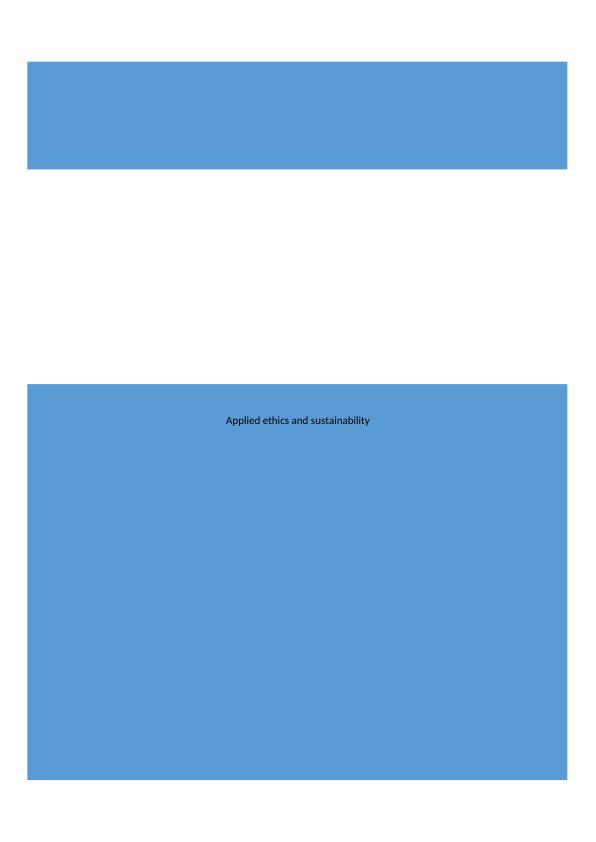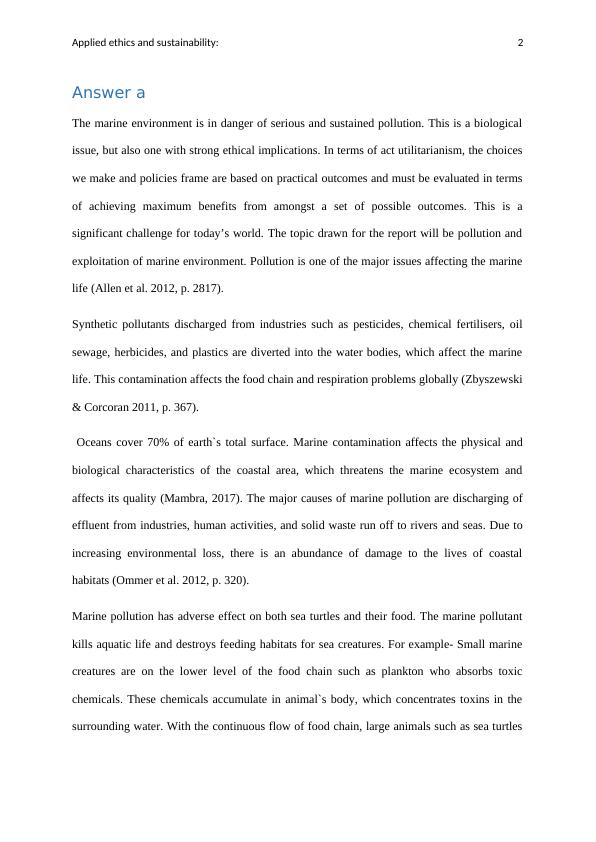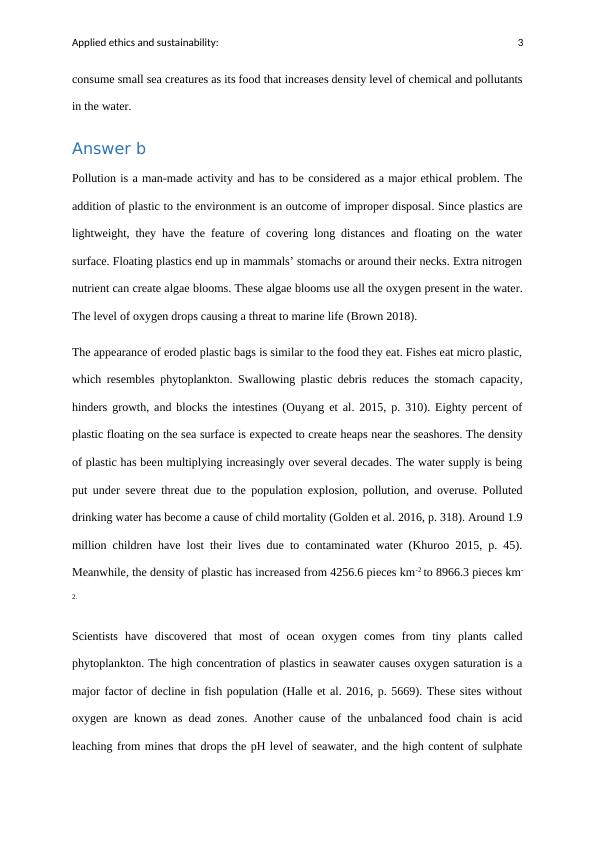Applied Ethics and Sustainability: Pollution and Exploitation of Marine Environment
The article discusses the effects of plastic pollution on aquatic wildlife and explores current situations and future solutions.
12 Pages2652 Words123 Views
Added on 2023-06-09
About This Document
This report discusses the ethical implications of pollution and exploitation of the marine environment. It covers topics such as synthetic pollutants, plastic waste, and loss of biodiversity. The report also explores the utilitarian theory and its application in solving ethical problems related to the environment.
Applied Ethics and Sustainability: Pollution and Exploitation of Marine Environment
The article discusses the effects of plastic pollution on aquatic wildlife and explores current situations and future solutions.
Added on 2023-06-09
ShareRelated Documents
End of preview
Want to access all the pages? Upload your documents or become a member.
Pollution and exploitation of Marine ecosystem
|9
|2359
|379
Impact of Plastic Pollution on Marine Life
|20
|1378
|88
Global Plastics Production affecting Oceans
|8
|1573
|55
Application For Sustainable Tourism Funding
|7
|1935
|147




